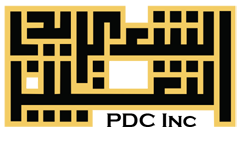Creating Capacity for Long-Term Solutions
People Demand Change is working towards the transformation of the current international aid and development system from one that is very expensive, bureaucratic and unsustainable, to a more modern and sustainable concept of aid and development. While providing emergency aid to conflict-stricken areas remains a necessity, PDC is also committed to helping communities find long-term solutions to providing for themselves.
This means ensuring any development program that PDC supports meets the following standards:
- Development projects or programs must be conceptualized by the community itself
- There should be a sustainable and long-term solution to a specific priority enumerated by the community
- Programs or projects will provide the community a certain level of economic independence and self-sufficiency, thus reducing the need for emergency international aid.
Previous Sustainable Humanitarian Aid Project:
PDC worked in partnership with a large development NGO to implement a water economy project in north-west Idlib that focused on providing a farming community the capacity to restart their local agricultural economy through the creation of water user associations (WUAs) and unions. These WUAs allow multiple farms to share water that is pumped out of wells using sustainable solar equipment and then piped onto each farmer’s land for irrigation of fruit trees and other vegetables.
PDC had an instrumental role in working with the local community and local council to develop the project idea and then form the partnership between the community’s local council and a partner NGO. PDC’s socialization team – which was made up of local residents known for their mediation and dispute-arbitration skills – supported the farmers in forming the WUAs and ensured continued communication between the farmers, the local council, a partnered NGO, and the wider community. The PDC socialization team also worked to conduct monitoring and evaluation of the project by monitoring the progress of the community and the coordination between the local council and the WUAs, post-project.





